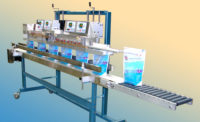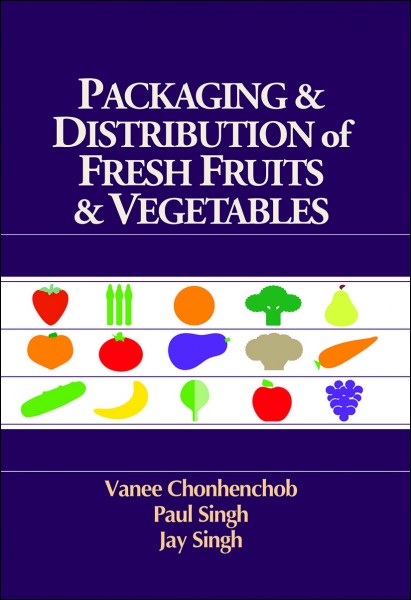Green packaging solutions take a look at sustainability trends
Green equipment and materials feature a wide range of features.

courtesy of Formost Fuji
When setting green/sustainability goals, consumer packaged goods (CPG) companies are moving beyond a narrow focus to look holistically and collaboratively at products, packaging, and operations. “Collaboration among CPG companies, materials providers and original equipment manufacturers is the key and should extend to other stakeholders,” says Jorge Izquierdo, vice president of market development for PMMI, Herndon, VA.
Two trends in sustainable packaging are the use of post-consumer recycled materials and materials that encourage recycling. Well-designed packaging considers the overall lifecycle impact, including avoiding waste of the product itself. Design for recyclability includes flexible packaging made from single-source materials that enable recycling. For example, most stand-up pouches are made from different laminated materials rendering them unrecyclable. However, if the pouch is converted from a single-source material, it will be recyclable in today’s processes.
Formost Fuji
Formost Fuji, Woodinville, WA, manufactures flow wrappers that are designed to increase efficiency and help bakery and snack producers achieve their sustainable packaging solutions. Features such as a shorter film route that reduces material or an obstruction detection sensor that prevents material waste are a few of the features that positively impact a bakery’s carbon footprint. Formost Fuji’s induction heat technology for fin sealers reduces energy usage, which is a big part of meeting sustainable goals.
A move toward green packaging solutions has become a priority as many bakery and snack producers are beginning to look at all aspects of the line and how they can improve efficiency with each piece of equipment, according to Angela McDaniel, marketing and sales coordinator. “Looking at challenges with labor and material costs, as well as achieving sustainability goals, requires the equipment to offer improvements in energy efficiency and setup and maintenance.”
Syntegon
Syntegon Technology, Waiblingen, Germany, has developed retrofit solutions for existing machines that allow manufacturers to process conventional plastics as well as sustainable options such as paper or mono-material. For example Syntegon’s “paper-ON-form” retrofit kit for horizontal packaging machines allows manufacturers to process paper at speeds comparable to those in conventional plastic packaging. In addition, Syntegon has developed a solution for high-throughput mono-material packaging.
“Paper-based solutions are ideal when examined through the lens of a circular economy, as they can be recycled and thus ensure long lifecycles,” says Torsten Sauer, director of sustainability at Syntegon. “Recent paper developments provide primary packaging solutions with improved barrier properties, opening up opportunities for a wide range of applications that go beyond traditional vertical and horizontal packaging options, such as paper-based trays for cookies or paper-based packaging for bars and chocolate.”
R. A Jones
R.A Jones Group, Covington, KY, is striving to adapt its high-speed pouch machines to run sustainable mono material webs. Growing consumer demand for packaging materials that are easily recyclable has provided sufficient cause for its engineers to solve the technical challenges associated with these substrates. Mono material webs require better control of both heat for sealing and web tension for pouch registration.
Both material and machine designs will continue to advance in the near future as the green revolution circles the globe, according to Bob Burkhardt, product portfolio manager for cartoning, robotics and pouching. “Besides advancing the sustainable pouch side of our business, R.A Jones will continue to work with customers who want to transition away from plastic materials to more easily recyclable paper-based packaging. Machine designs will become more advanced in the technologies to handle a variety of materials, but also in their usage of utilities.”
Amcor Flexibles North America
Amcor Flexibles North America, Oshkosh, WI, offers three paths to green packaging: recycle-ready (mono PE) films, compostable films and paper. These materials are available in a variety of product formats such as flow-wrap/bar-wrap, pouch, over-wrap, vertical form/fill/seal, and lidding. The company recently introduced AmPrima PE Plus, a recycle ready, heat-resistant solution for high-speed flow-wrap or form/fill/seal pouching that allows users to run at commercial line speeds.
“AmPrima PE Plus films enable customers to shift to recycle-ready solutions without compromising on performance, product appearance or manufacturing throughput,” says Mary Johnson, director of marketing communications. “When clean and dry, the films can be collected for recycling curbside or through in-store drop-off locations. The films also are prequalified for the How2Recycle label.”
Fortis Solutions Group
Fortis Solutions Group, Virginia Beach, VA, provides a wide range of sustainable materials. “A sustainable package could be defined as one with the lowest environmental impact that still provides the performance required to market the product within,” says Derek Sims, director of sales.” Options include pressure-sensitive labels for PET (polyethylene terephthalate) containers that wash off during the recycling process, shrink sleeves that do not impact the PET recycling process or de-seam, flexible packaging that contains sustainably sourced materials, and paperboard folding cartons.”
Fortis Solutions Group has developed a stand-up pouch that can be recycled at store drop-off locations. The single-stream material pouch provides oxygen and moisture barriers similar to multi-material structures; as well as sealability, high seal strength integrity and puncture-resistance. The structure is capable of receiving the How2Recycle label.
Dow
In support of its Close the Loop sustainability goal, Dow aims to enable all packaging applications to be reusable or recyclable by 2035. The company has identified performance targets that must be achieved to enable all-PE recyclable films. The three main categories it is focusing on are optimizing the machinability, barrier and abuse performance of films.
“We have a strong portfolio of resin solutions to address these challenges and a multi-generational innovation pipeline to continue to meet the performance needs of our partners,” says Michelle Sauder, Dow marketing director for Food and Specialty Packaging. “We’ve enjoyed highlighting many of these products through Dow’s Extreme Packaging Makeover webinar series, which is a great resource for bakery and snack producers who are looking for recyclable film options for their products.”
Kwik Lok Corp.
Kwik Lok’s Eco-Lok brand helps companies reduce plastic and their carbon footprint. “In some markets, we are providing zero percent plastic options,” says Karen Reed, global director of marketing and communications, Kwik Lok Corp., Yakima, WA. “If their only goal is to reduce the use of plastic on a larger scale, Fibre-Lok is an ideal closure option. Both products have been tested to be sure that they operate with current Kwik Lok closing machines and work in the environments for which they are intended. Renewably sourced, they are durable to keep food fresh and safe through end of life.”
Reed says its customers need solutions that work with their existing Kwik Lok equipment. “With global economic and supply chain pressures, capital expenditures may not be an option at this time. At Kwik Lok, we are focused on providing packaging solutions that customers can run on machines already in place.”
Bedford Industries
For many years, Bedford Twist Tie products have been used to secure product safety and freshness. “We understand that everyone has different sustainability goals, so we have developed many different types of twist ties. We offer an all paper, paper/plastic, plastic, and even PolyTwist, a wire-free option,” says Beth Radloff, marketing specialist at Bedford Industries, Worthington, MN. “According to a weight comparison we conducted, the paper/plastic twist tie (our most popular) uses 86 percent less plastic than common bakery clips in the industry.”
Beford Industries TagBack program allows consumers to return their used twist ties to the company. The program has been well received by retailers and consumers, who have returned more than 110,000 pounds of materials. “We offer free collection boxes to retailers and welcome conversations with bakery and snack producers who are interested in leveraging the program for their own sustainability goals and branding,” Radloff notes.
Sealstrip Corp.
Sealstrip Corp., Gilbertsville, PA, has developed VerdeSeal, a recyclable reseal material that works in-conjunction with recyclable flexible packaging films to create a complete recyclable package. VerdeSeal can be utilized in other Sealstrip products such as FreshPak.
“We often get calls about our new VerdeSeal technology, which uses materials that reduce carbon footprint and allow for disposal in the same recycle stream as the package itself,” says Heather Chandler, president. “Sealstrip applicators and materials can provide carbon reductions and minimal energy usage in packaging production. They also are lightweight, and use less plastic while maintaining functionality.”
Among many new green packaging initiatives happening today, a multi-client project called NEXTLOOPP, led by Nextek, is developing polyPRISM technology to sort and wash polypropylene (PP) containers in order to establish closed-loop recycling for food-grade PP. “Full-scale trials have shown separation rates in excess of 99 percent,” Izquierdo says. “The next step is to print the codes on labels of commercial products to demonstrate performance in a large-scale trial. The project also is working toward food-grade accreditation.”Looking for a reprint of this article?
From high-res PDFs to custom plaques, order your copy today!








